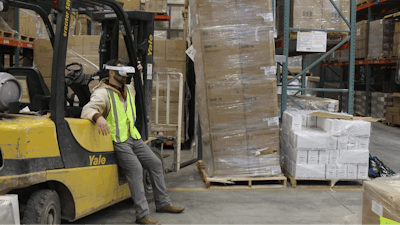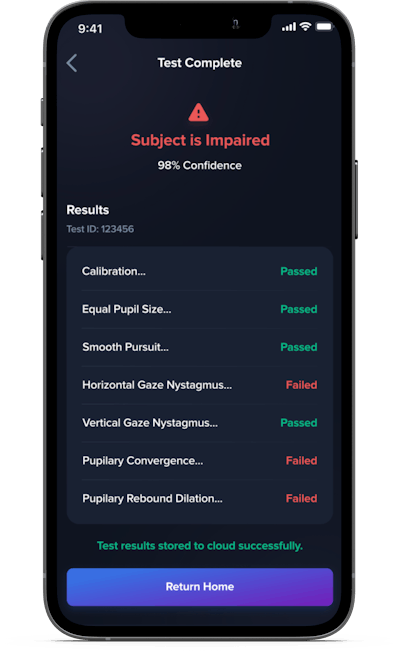
Gaize yesterday launched a new real-time impairment screening device for cannabis and other drugs. The fully automated, non-invasive, portable eye movement test combines well-established Drug Recognition Expert (DRE) eye examinations with the latest artificial intelligence in a VR headset.
For Similar Content: Subscribe to Daily Newsletters
DRE eye tests are considered the gold standard for impairment detection. Gaize runs the same tests using a VR headset with embedded eye-tracking sensors. Machine learning models analyze the data to discover involuntary eye movement changes correlated with impairment.
The product launch follows a successful clinical trial, the largest to investigate cannabis impairment. The headset stands to fill a potential void left by cannabis breathalyzers that are missing the mark when it comes to real-time impairment.
Ken Fichtler, Gaize founder and CEO, says the product was created to solve problems with cannabis-impaired drivers and workers. THC interacts with the body much differently than alcohol, and it can linger for more than a month since its last use. Fichtler adds that no amount of THC in the body has ever produced a predictable level of impairment, so measuring THC is not a sufficient impairment indicator.
According to Fichtler, in places where cannabis is legal, it's important to be able to determine whether or not someone is impaired and not only that they have used cannabis previously.
The headset is a particularly good fit for manufacturing and industrial companies. In many states, THC users are a protected class, which means employers can't take adverse action against an employee based on the presence of THC. Instead, employers must prove that an employee was impaired on the job.
"Even in states where employers are allowed to fire employees for using THC, the realities of hiring are that it's increasingly difficult to find workers who can pass a THC test," Fichtler says. "Since THC lasts in the body for so long and the real issue is on-the-job impairment, employers are starting to drop THC tests entirely. This exposes them to rampant workplace impairment."
 Gaize is a VR headset with embedded eye-tracking sensors. Machine learning models analyze the data to discover involuntary eye movement changes correlated with impairment.Gaize
Gaize is a VR headset with embedded eye-tracking sensors. Machine learning models analyze the data to discover involuntary eye movement changes correlated with impairment.Gaize
Gaize's test results are easy to interpret, and each test includes video evidence of the eye movement. From this, users can quickly and confidently make defensible decisions.
Results are delivered within six minutes from the time the test begins, enabling more frequent impairment screenings. The headset is designed to be used by non-tech-savvy individuals.
"We envision a world [in which] drivers and workers are verifiably sober before engaging in any safety-sensitive task," Fichtler says. "With Gaize, companies can test employees each day before the start of shift, after a lunch break or before operating equipment."
 Gaize's test results are easy to interpret, and each test includes video evidence of the eye movement. From this, users can quickly and confidently make defensible decisions.Gaize
Gaize's test results are easy to interpret, and each test includes video evidence of the eye movement. From this, users can quickly and confidently make defensible decisions.Gaize
Pre-orders will begin shipping by the end of the month. According to Fichtler, the lead time for orders up to 20 units after pre-orders ship is effectively zero. For larger orders, the lead time is 30 days.
Training is provided to customers and takes about 2.5 hours to complete.
According to Fichtler, Gaize is a good fit for any organization with safety-sensitive employees, particularly those with remote job sites. "Since our product is entirely portable, it's really useful when customers need a way to ensure their workforce is sober in places where traditional screening is inaccessible or impractical."






















